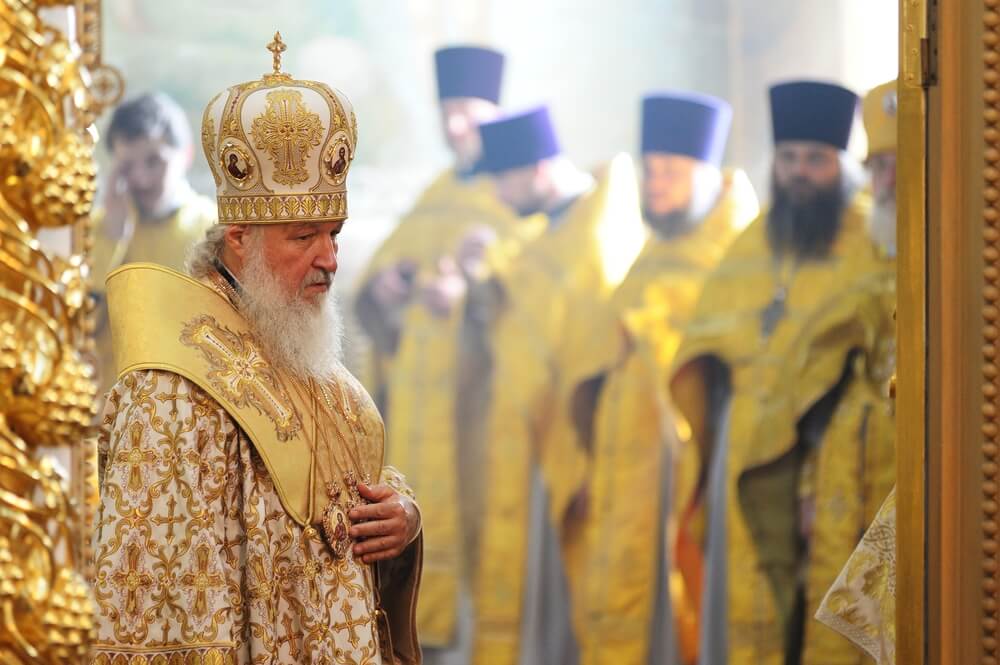Orthodox Christianity cannot avoid deep internal divisions, and there is not much prospect for unity before significant dates for Christianity this year and next.
The division within the block of Orthodox Christian churches did not happen suddenly. However, the latest global crises accelerated the division and made it almost insurmountable, particularly the Russian aggression against Ukraine.
Orthodox Christians celebrated Easter yesterday, a little later than the Western Christian churches, in an atmosphere of deep divisions and a two-year war between the two most numerous Orthodox nations, Russian and Ukrainian.
Russia's aggression against Ukraine mobilised the Russian Orthodox Church, which enthusiastically accepted the role of participating in its imperial campaign.
Patriarch Kirill of Moscow, the head of between 90 and 100 million Russian Orthodox, is one of the most influential long-term supporters of Vladimir Putin's rule. That support was not lacking, even when Russia launched a military campaign against Ukraine in February 2022.
Patriarch Kirill then praised his most famous believer for “high and responsible service to the people” and assured the Russian army that they should have “no doubts they have chosen a very correct path”.
The patriarch comforted the families of soldiers who died in Ukraine, saying that their sacrifice on the Ukrainian front “washed away all sins”.
Punishment for calling for peace
The line of division in the Orthodox world, with around 300 million believers, one-third of whom are in Russia, has long coincided with the line of conflict between Russia and Ukraine.
The Russian Orthodox Church has been unforgiving of anyone who has (even unintentionally) questioned the legitimacy of the military operation in Ukraine, even in the days preceding Easter.
The church has severely punished and suspended its priest, Dmitry Safronov, for holding a memorial service for the late opposition leader Alexei Navalny, killed in a Russian prison.
An Orthodox monk from the Moscow area was punished for praying for the reconciliation of the peoples of Russia and Ukraine
An Orthodox monk from the Moscow area was punished at the end of April for praying for the reconciliation of the peoples of Russia and Ukraine. This received far less attention than the previous case.
According to Patriarch Kirill, who delivered the sentence, the monk continuing to associate with the punished priest (who dared to use the word “peace” in his prayer and not “victory” in the war in Ukraine) was an even greater “sin”.
The Patriarchate of Constantinople in Istanbul, considered “first among equals” in the Orthodox world, welcomed the excommunicated and runaway Russian priest who advocated for peace rather than victory.
Boycott of inter-Christian dialogue
Of the 14 autocephalous (independent) Orthodox churches, the Patriarchate of Constantinople enjoys the most authority, but the Russian Orthodox Church has long wanted to claim that status.
Their “war” culminated six years ago, when Constantinople Patriarch Bartholomew I and his Synod recognised the independence of the Ukrainian Orthodox Church, which was met with celebration in Ukraine and as a “disaster” in Moscow.
Despite their deep divisions, Orthodox Christians will celebrate a historic jubilee next year, marking 1,700 years since the first council of Christian bishops in Nicaea (modern-day Turkey).
The Russian Orthodox Church does not want to participate in ecumenical events with Western Christians
In an endeavour to bridge the centuries-old divide between the two Christian camps, Patriarch Bartholomew and Pope Francis will commemorate this historic day for Christianity with a combined celebration in Nicaea.
However, the Russian Orthodox Church does not want to participate in ecumenical events with Western Christians. It has been sliding towards expulsion from the World Council of Churches, a global ecumenical forum, which warned last April that such a possibility was real.
The reason is that Moscow Patriarch Kirill, as chairman, signed the declaration of the World Russian People's Council forum celebrating the aggression against Ukraine as a “new stage in the Russian people's national liberation struggle” against the “criminal Kyiv regime and the collective West behind it” and must end with the “entire territory of modern Ukraine” locked in a “zone of exclusive Russian influence”.
Expansion of influence in Africa
The Russian Orthodox Church has also been suffering heavy criticism from political bodies, such as the Council of Europe, which last April marked it as a factor in “abuse of religion and the distortion of the Christian Orthodox tradition”".
“The hierarchy of the Moscow Patriarchate of the Russian Orthodox Church, including Patriarch Kirill, has been championing the Russkiy Mir ideology, declaring the war against Ukraine and the “satanic” West as a “holy war of all Russians”, urging Orthodox believers to sacrifice themselves for their country", stated the declaration of the Parliamentary Assembly of the Council of Europe, the organisation from which Russia was expelled due to its aggression against Ukraine.
 With its priests' unwavering support for the aggression against Ukraine, the Russian Orthodox Church has been rapidly expanding its influence - Patriarch Kiril
With its priests' unwavering support for the aggression against Ukraine, the Russian Orthodox Church has been rapidly expanding its influence - Patriarch Kiril
However, clerics in Moscow do not pay much attention to the appeals of international bodies or other Orthodox churches. With its priests' unwavering support for the aggression against Ukraine, the Russian Orthodox Church has been rapidly expanding its influence, particularly in Africa.
Just before the Russian attack on Ukraine, the Moscow Church formed two new dioceses in Africa (Cairo and Johannesburg), thus violating the jurisdiction of Alexandria's Patriarchate.
This step has been motivated by profane, not religious motives, because it represents a kind of revenge against Alexandria's Patriarch Theodore II, given that he recognised the autocephaly of the Ukrainian Orthodox Church.
In a few months, in July, 970 years since the Great Schism, the separation of Christianity into West and East will be marked. The Eastern Orthodox Churches are heading towards this great historical date with a heavy burden of division in their own block.